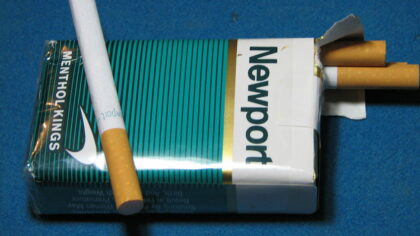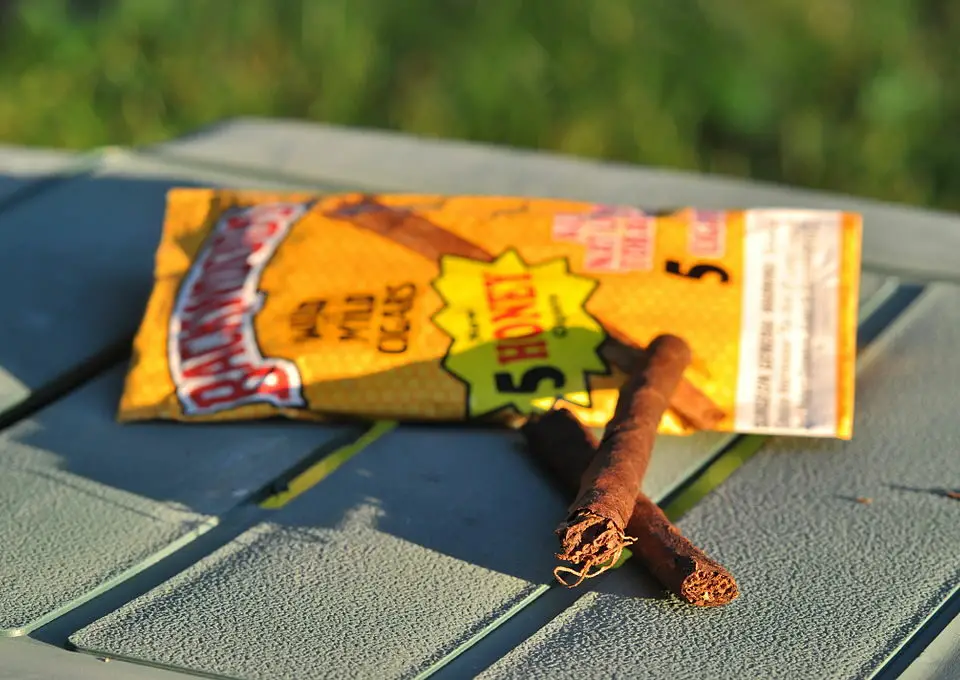Honey or vanilla-flavored Backwoods soon will not be available at the corner store and your blunts might be a little less tasty as the government positions itself with a massive prohibition on some of the hood’s favorite roll-ups.
The Food and Drug Administration revealed that menthol tobacco cigarettes and all flavored cigars will be banned in the United States. Let the jitters begin!
The organization, responsible for regulating what is safe for American consumption, believes that these big tobacco companies are making certain flavors pronounced in their products because … you know … minorities like sweets stuff. It also asserts that this is a great move that will help with improving health and wellness within communities (Black, Hispanics, and children) shackled by disease related to smoking these products.
The tobacco industry targets African Americans, LGBTQ, youth and other minorities with its beautiful lies about menthol tobacco. But these communities are standing up to the industry. They know the ugly truth about menthol. https://t.co/vvEtHzMbR2 @ANSRMN @UglyMenthol #mnleg
— MN Smoke-Free Gen (@smokefreegenMN) February 23, 2021
In a statement released on its website, the authorities noted:
“Today, the U.S. Food and Drug Administration announced it is committing to advancing two tobacco product standards to significantly reduce disease and death from using combusted tobacco products, the leading cause of preventable death in the U.S. The FDA is working toward issuing proposed product standards within the next year to ban menthol as a characterizing flavor in cigarettes and ban all characterizing flavors (including menthol) in cigars; the authority to adopt product standards is one of the most powerful tobacco regulatory tools Congress gave the agency. This decision is based on clear science and evidence establishing the addictiveness and harm of these products and builds on important, previous actions that banned other flavored cigarettes in 2009.”

The Acting FDA Commissioner Janet Woodcock, M.D further explained, “Banning menthol—the last allowable flavor—in cigarettes and banning all flavors in cigars will help save lives, particularly among those disproportionately affected by these deadly products. With these actions, the FDA will help significantly reduce youth initiation, increase the chances of smoking cessation among current smokers, and address health disparities experienced by communities of color, low-income populations, and LGBTQ+ individuals, all of whom are far more likely to use these tobacco products.”
“Together, these actions represent powerful, science-based approaches that will have an extraordinary public health impact. Armed with strong scientific evidence, and with full support from the Administration,” she continued. “We believe these actions will launch us on a trajectory toward ending tobacco-related disease and death in the U.S.”
Our Natasha Phelps (@Tash612) shared her thoughts on #menthol in commercial tobacco and its toll on the Black community. @FDATobacco can ban the sale of menthol cigarettes on April 29: https://t.co/9ORGh8B7l7 #BanMenthol #HealthEquity @blackbodyhealth @aatclc
— Public Health Law Center (@PHealthLawCtr) April 23, 2021
The statement also included statistics that many have suspected, but have in black and white from sound researchers and can lift as true.
If the nation banned menthol cigarettes, products that use the flavoring to mask the nasty taste of straight-up tobacco, within one year to one year and a half, 923,000 smokers may quit smoking. Among that almost 1,000,000-segment of the American population, it is believed that 230,000 would be African Americans. The research also suggests that 633,000 deaths would be prevented and almost a third (237,000) of that would Black people.
“For far too long, certain populations, including African Americans, have been targeted, and disproportionately impacted by tobacco use. Despite the tremendous progress we’ve made in getting people to stop smoking over the past 55 years, that progress hasn’t been experienced by everyone equally,” the Director of the FDA’s Center for Tobacco Products, Mitch Zeller, J.D. said. “These flavor standards would reduce cigarette and cigar initiation and use, reduce health disparities, and promote health equity by addressing a significant and disparate source of harm. Taken together, these policies will help save lives and improve the public health of our country as we confront the leading cause of preventable disease and death.”
This is a revolutionary act to ban cigarettes and flavored cigars. Outside of Nixon banning cigarette commercials in 1969/70, there are very few laws prohibiting the sale of the sticks (outside of requiring a license to sell them and an age limit on who can purchase them). There has been significant work to quell smoking in public spaces.
As of July 2018, 26 states have statewide bans on smoking in all enclosed workplaces, including all bars and restaurants, with five states allowing people to smoke in adult venues such as bars and casinos.
